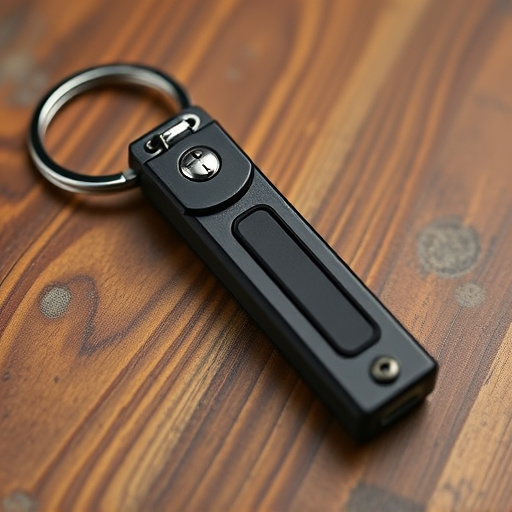Keychain Self Defense Spike Tools vary in legality across US states, with regulations dictating possession and use. Understanding local laws is crucial to avoid legal issues and ensure compliance. Some states permit open carry without a license, while others require permits or registration. Illegality carries severe risks including criminal charges, fines, and potential civil liabilities.
“Uncovering the legal landscape surrounding self-defense keychain spike tools is essential for responsible citizens aiming to protect themselves. This comprehensive guide explores state-specific regulations, offering insights into the permitted use cases and carrying requirements of these compact defense tools. From legal definitions to potential consequences, we demystify the key aspects. Understanding your rights and responsibilities is crucial when considering a keychain self-defense spike tool as a means of personal safety. Discover the do’s and don’ts across various states.”
- Legal Definitions of Self Defense Keychains
- State-Specific Regulations and Restrictions
- Permitted Use Cases for Keychain Tools
- Carrying Requirements and License Needs
- Potential Consequences of Illegal Possession
Legal Definitions of Self Defense Keychains
In many jurisdictions, a “self-defense keychain” refers to a portable device designed for personal safety, often equipped with features like pepper spray or a sharp spike tool. These tools are marketed as convenient and effective means of deterring potential attackers, allowing users to defend themselves in various situations. The legal definitions and regulations surrounding such keychains vary significantly from state to state.
Keychain self-defense spike tools, for instance, are typically categorized under self-defense laws, which often differentiate between devices used for protection and those intended for offensive purposes. States may have specific requirements regarding the legality of carrying such tools, including restrictions on where and how they can be used. Understanding these legal definitions is crucial for individuals considering acquiring a keychain self-defense spike tool to ensure compliance with local regulations and avoid potential legal repercussions.
State-Specific Regulations and Restrictions
When considering a keychain self-defense spike tool as a personal safety measure, understanding state-specific regulations is paramount. Each U.S. state has its own set of laws governing the possession and use of such devices, with varying restrictions on what constitutes legal self-defense tools. For instance, some states explicitly permit the carrying of small, easily concealable self-defense tools like keychain spike keys, while others have more stringent requirements or outright ban them.
The legal landscape for keychain self-defense spike tools can be complex, with factors such as blade length, purpose, and local ordinances playing significant roles in their classification as legal self-defense equipment. It’s crucial to research and comply with your state’s specific regulations to avoid any legal complications. Always ensure that the device falls within the legal definition of a self-defense tool and understand the consequences of possessing or using it where prohibited.
Permitted Use Cases for Keychain Tools
Keychain self-defense tools, such as spike tools, are designed for personal safety and can be a legal option for defense in certain situations. These compact devices offer a discreet yet effective way to deter potential attackers. The permitted use cases for keychain tools like the keychain self-defense spike vary by state, but they are generally intended for immediate and temporary protection against physical harm.
Carriers of these tools should be aware that their legality depends on specific regulations, including restrictions on where and how they can be used. In some states, using a keychain defense tool may only be legal as a last resort when other means of escape or de-escalation are not feasible. It’s crucial to understand the local laws and consult relevant statutes to ensure compliance and effective protection in case of emergencies.
Carrying Requirements and License Needs
In many states, carrying a keychain self-defense spike tool comes with specific legal requirements and license needs. Before considering this as your personal safety measure, it’s crucial to understand these regulations. The legality of such devices varies widely across states in the US, with some permitting their open carry without a license, while others mandate a permit or even registration.
For instance, some states allow qualified individuals to possess and carry self-defense tools like keychain spike keys as long as they meet certain criteria. This may include attending a training course, passing a background check, and having no prior felony convictions. Always verify local laws and consult official resources for accurate information regarding the legal status of keychain self-defense spike tools in your state.
Potential Consequences of Illegal Possession
The potential consequences of illegally possessing a keychain self-defense spike tool can be severe, varying by state laws and jurisdiction. If caught with this weapon without proper authorization or in an unauthorized location, individuals may face criminal charges ranging from misdemeanors to felonies. Fines, jail time, and a permanent criminal record are all possible outcomes. The specific legal requirements differ across states, with some permitting self-defense tools only if they meet certain criteria, such as size limitations or registration.
Illegal possession can also lead to civil liabilities, including lawsuits from victims injured during an attack. Additionally, law enforcement agencies may seize the tool as evidence, which could complicate any future legal proceedings related to its use. It’s crucial to understand and comply with local laws regarding self-defense tools like keychain spike keys to avoid these consequences, ensuring personal safety without crossing legal boundaries.
Understanding the legal landscape surrounding keychain self-defense tools, such as the keychain self-defense spike, is crucial for ensuring compliance. Each state has unique regulations and restrictions, covering everything from permitted use cases to carrying requirements and license needs. It’s essential to be aware of these laws to avoid potential consequences, including charges for illegal possession. Always check your local statutes before carrying any self-defense tool to protect yourself legally and responsibly.
